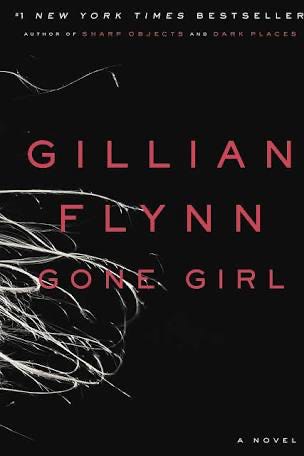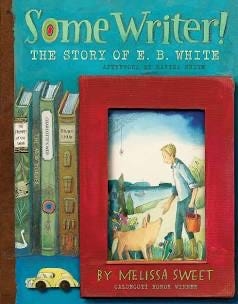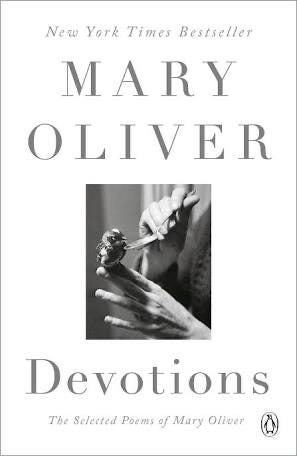Reading to Escape
Sometimes a Girl Just Needs to Be Gone
Welcome to Pocketful of Prose. Thanks for being here. If you like what you read, please click the heart at the bottom of the pocket. Pocketful of Prose is free for everyone, so please share with friends. You can support these pockets by becoming a paid subscriber. Huge thanks to our current paid subscribers. I can no longer count you all on one hand.
Without further ado, today’s pocket.

I’ve been reading books lately on how to be better. I’m knee deep in rethinking my garden and my role on the planet. I even checked out a birdwatching kit from the library. If you haven’t heard of the library of things, you should look into it. You can check out a lot of cool things. A guitar, a telescope, and a badminton net are some of the things you can check out at our local library. And of course, a bird watching kit, which is essentially a purple and black bag with several books on birding and a beautiful set of black binoculars labeled with a tag that reminds you ever so gently that if you fail to return the kit, you will be charged $138.95. Those of you who know my library history, know this is a warning, I probably need to heed.
Bird watching is supposed to be a hobby, something you do for fun. As I heft the bag over my shoulder, I realize I may have managed to turn it into a chore. The purple and black bag is heavy, and sometimes the expectation to do something, to make something, to be more something is heavy too. This year, I learned that over achievement is a trauma response. To say that was a lightbulb moment for me doesn’t quite cut it. It felt equivalent to discovering light.
Reading The Isolation Journals earlier this week, I resonated with Suleika sharing some of Rachel Cargle’s experience. Rachel wrote A Renaissance of Our Own: A Memoir and Manifesto on Reimagining. In the summer of 2020, “when racial justice was coming to the fore and the whole world was looking to Rachel as a leader, rather than getting caught up in some frenetic grinding pace, she slowed down and prioritized rest in a way that felt profoundly radical. Rachel said she has come to understand that she moves in cycles—that there are times to work hard and times she needs to lie fallow. And in those fallow times, rather than feeling self-recrimination for not being productive, she accepts it as part of the process, as essential as the phases of productivity… Quoting the therapist Nedra Tawwab, ‘Sometimes stuck is just still.’”
I am committed to being a more conscious gardener, to considering the creatures I share space with. (I so appreciate the recs I received from many of you last week, and I will include them at the end of this pocket.) But if nature is my best teacher, I am also reminded that over tilling is not only exhausting, it is harmful. Sometimes, you need to leave it alone. Sometimes, you need to let yourself lie fallow.
My mom’s mantra when I was growing up was everything in moderation. I hated it. I have a tendency toward the extremes, but the arc of justice is long, and change takes time, and I guess my mom was right. In my husband’s Italian family, they like to say, “col tempo e la pazienza, la foglia di gelso diventa la seta.” With time and patience, the mulberry leaf becomes silk. Overachieving helped me reap some rewards in my life for which I am grateful, but it also raked me over the coals a bit. (If this topic interests you, I’ll be revisiting it in future pockets.) Now, I seek balance and rest. I try to at least recognize when I’m pushing too hard. When I’m tipping over in the library check-out because of my new purple and black birding bookbag and accompanying enthusiasm, I recognize it might be time for something a little lighter. Last week, I jokingly told a good friend that I was feeling a bit overwhelmed by my book selections. I needed to take a break from any book that was trying to make me better. I was joking, sort of. She laughed and reminded me that balance was key to a good reading life.
So, this week, in my spare moments, I’m sipping tea and nibbling espresso dark chocolate and reading Gone Girl by Gillian Flynn. Because sometimes a girl just needs to be gone. I have no responsibility to this thriller or to myself. I have no idea where things went awry or how they unraveled but thinking about it is not stressful in any way. I have no clue where the book will take me. I’m simply content to sit with it and soak up time.
Sometimes we are going through something, and we just need to sit. Reading Gone Girl this week has me reflecting on other times where books helped me escape, times where I was so into the world I was reading about, that I was able to forget my own world for a minute. This might seem contradictory coming from someone who seeks presence, who strives to find awe in the everyday and who believes wholeheartedly in Mary Oliver’s words, “Love is paying attention.” But I think it comes back to balance. I think in order to strive for true presence in our everyday lives, it is helpful to escape them sometimes. To remind ourselves, we are mere mortals.
Here's my short list of reads I’m grateful for because they offered some well needed mental distraction. Just as some of us prefer tea and some coffee, and some of us would die to hike the El Camino and some of us would rather die, the books that offer us respite might not be similar. My list is a motley assortment which includes historical fiction, non-fiction and fiction. It doesn’t really include any typical beach reads because those don’t usually work for me. It’s not about the books we choose to escape with, it’s about the act of choosing to escape.
1. The Book Thief by Markus Zusak. Again, this is not a beach read. Death is personified on the first page. It takes place during the Holocaust, so again, pretty dark, but in a way, it’s a book about the power of books to soothe us in the darkest of times, so it resonated. I read it in the hospital after giving birth to Anna. Any book that can distract from that kind of pain is pretty good.
2. Some Writer. The Story of E.B. White by Melissa Sweet. Funny, how the first two books on this list are about the art of reading and writing themselves. I read this book in 2016, a year many of us needed some distraction. I was part of a Caldecott, Newberry book club, where we read the nominees and discussed which books, we would choose for the award. Melissa’s book did not win the medal that year, but it won my heart. I love Charlotte’s Web. Some children’s books don’t hold up when we reread them as adults, but that is not the case with Charlotte’s Web. Every time I read it, I love it more and more, and I am reminded that truly “With the right words, you can change the world.” Biography is not usually my genre of choice. I love memoir, but I have a hard time sticking with traditional biography. Melissa, though, creates delightful collages to illustrate her words, and the collages are so darling, and so soothing, they make you feel like everything is going to be okay. “Life is always a rich and steady time when you are waiting for something to happen or to hatch.” I read Melissa’s book during a time of waiting, expectation and anxiety, a time when everything was not feeling okay. At our first doctor’s appointment for our third pregnancy, we learned that the pregnancy might not be viable. We were sent home to wait. While we waited, I carried Melissa’s book around with me hoping for something amazing to happen while being worried that it would not. Any book that can distract you from that kind of pain is pretty good.
3. Bel Canto by Anne Patchett. This book is as beautiful as it sounds. I read it while I was transitioning between jobs, taking a leap of faith leaving my teaching job of five years, waiting to see if I could find something closer to our home and our young daughter. It was a rough summer. Dan was prosecuting one of his first big trials, so he was pretty absorbed with that. It was our first foray into living outside of the city, and I decided to take up gardening. I was awful at it. My first venture was hacking out these giant plants that were overcrowding our fence. I felt so proud of myself until two days later, giant black orbs the size of quarters developed on my arm. It turned out I had poison ivy covering my entire body. My stomach swelled to three times its normal size. When I finally went to the doctor, she stared at me aghast, not understanding why I had waited so long to come in. My case was so bad, it took all summer and into the fall to heal. I had to go on prednisone to manage it, which caused a whole another type of hormone hell. I wore long sleeves to all my job interviews even though it was the middle of a DC summer, and the humidity was through the roof. I covered my bloated body and tried to pretend everything was as it should be. Anne’s book took me away from my deep-seated fears that things would continue to spiral. In one of my job interviews, I compared Anne’s book to a tall glass of water on a stifling day, which is what the book was truly like for me, a life-saving offering. I clung to its pages as I navigated my world of young motherhood, illness and chaos. I credit Anne’s book for helping me salvage some of my sanity and for helping me get that job.

What resonates with you this week? Do you have an escape book to recommend to us? What books did you carry during your hardest times? Curious if anyone rereads books for comfort? I have a habit of throwing Devotions in my bag when I need a little extra love. I would love to continue this conversation in the comments. I encourage you to read and respond to the comments of others. It helps build community.
Books, Songs and Podcasts for a More Beautiful World
Thank you Tera, Misti, Mak, Janisse, and Celeste
Braiding Sweetgrass by Robin Wall Kimmerer
Urban Bestiary by Lynn Haupt
Wildscape and Humane Gardener by Nancy Lawson
You Must Revise Your Life by William Stafford
Anything Mary Oliver has ever written
On Being interview with Janine Benyus — “Biomimicry, an Operating Manual for Earthlings”







Oh Rachel, thank you for sharing this story with us. Man, it sucks when we reach out for help only to be further victimized. Thank goodness for books. I’m so glad you found us here.
Were you the one that told me about the kit Celeste? 🥰 Would you consider sharing your poem here?
In Padraig’s Poetry Unbound Substack, he asked about your relationship to time. Here’s what I wrote.
I love when I can lose track of time, have what Cheri Maples called a zen moment. This happened yesterday when I wrote about reading ironically as a way to escape. It happens often when I garden. It’s delicious and I wish it happened more. Yesterday before noon I felt like the day was over and I would not accomplish all that was on my list, and it’s a holiday weekend. So maybe my expectations for time and myself are too high.